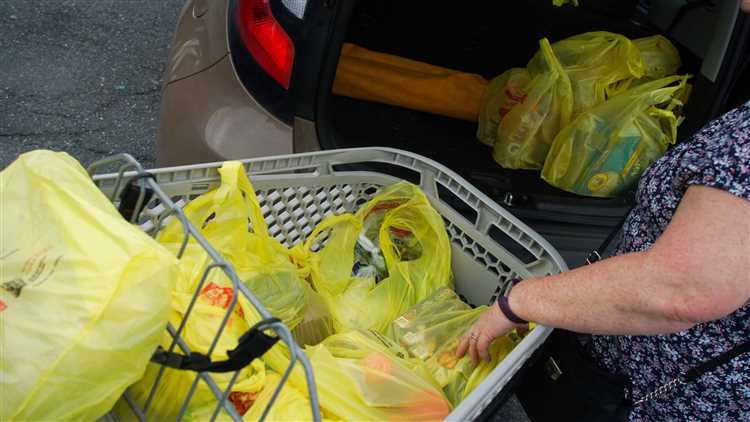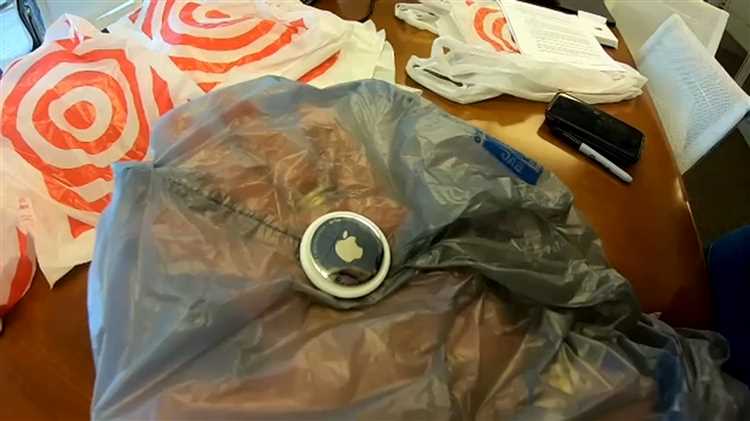Delaware, the second smallest state in the United States, has recently taken a major step towards protecting the environment by implementing a ban on plastic bags. This decision comes as part of a wider effort to reduce plastic waste and promote sustainability in the state. The ban, which took effect on January 1st, 2021, prohibits retailers from providing single-use plastic bags to their customers.
But why did Delaware choose to enact this ban? Plastic bags have long been a significant contributor to pollution and ecological damage. They take hundreds of years to decompose, often ending up in waterways where they harm marine life. Furthermore, the production of plastic bags requires non-renewable resources, such as oil, which exacerbates climate change. By banning single-use plastic bags, Delaware aims to encourage consumers to make more sustainable choices and reduce their environmental impact.
This move is not entirely unprecedented. Several other states and cities across the United States have already implemented similar bans and restrictions on plastic bags. By following in their footsteps, Delaware demonstrates its commitment to environmental stewardship and joins the global movement towards a more sustainable future. The ban is also aligned with the state’s broader efforts to protect its natural resources, preserve biodiversity, and combat pollution.
- Overview of Plastic Bag Pollution
- Environmental Impacts of Plastic Bags
- Delaware’s Decision to Ban Plastic Bags
- Environmental Impact of Plastic Bags
- Benefits of the Ban
- Implementation of the Plastic Bag Ban
- Question-answer:
- When did Delaware ban plastic bags?
- Why did Delaware ban plastic bags?
- What are the alternatives to plastic bags in Delaware?
- How will the ban on plastic bags be enforced in Delaware?
- Are there any exceptions to the plastic bag ban in Delaware?
- Why did Delaware ban plastic bags?
- When did Delaware ban plastic bags?
Overview of Plastic Bag Pollution
Plastic bag pollution has become a major environmental issue worldwide. These lightweight bags made of polyethylene take hundreds of years to break down, causing long-term damage to the environment. The main sources of plastic bag pollution are single-use bags used for shopping and packaging.
Plastic bags are non-biodegradable and do not decompose naturally. As a result, they end up in landfills, oceans, and other natural habitats, posing a threat to wildlife. Marine animals, such as sea turtles and birds, often mistake plastic bags for food and can suffocate or starve to death as a result. The bags also get entangled in vegetation, affecting the ecosystem balance.
The production of plastic bags is also a significant contributor to pollution. The manufacturing process involves the extraction of fossil fuels and the release of greenhouse gases, contributing to climate change. Additionally, plastic bags are often made from non-renewable resources, depleting valuable natural resources.
Plastic bag pollution has prompted governments, organizations, and individuals to take action. Many countries and cities have implemented bag bans or fees to reduce the use of disposable bags. Alternative options such as reusable bags made of fabric or recycled materials have gained popularity as an eco-friendly alternative.
- Plastic bag pollution has a widespread impact on the environment.
- Marine animals suffer from ingestion and entanglement in plastic bags.
- The production of plastic bags contributes to greenhouse gas emissions and resource depletion.
- Bag bans and reusable options are being implemented to combat plastic bag pollution.
Overall, plastic bag pollution poses a serious threat to our ecosystems and requires a collective effort to reduce its impact. By adopting sustainable alternatives, we can minimize the harm caused by plastic bags and work towards a cleaner and healthier environment.
Environmental Impacts of Plastic Bags

Plastic bags have been a convenient and widely used item for many years, but their impact on the environment has become a growing concern. The production, use, and disposal of plastic bags contribute to various environmental issues that affect ecosystems and human health.
One of the major environmental impacts of plastic bags is their contribution to pollution. When plastic bags are improperly discarded, they can end up in rivers, lakes, and oceans, where they pose a significant threat to marine life. Marine animals can mistake plastic bags for food or become entangled in them, leading to injuries and even death. Additionally, plastic bags take a long time to break down, and as they degrade, they release microplastics into the environment, further polluting water sources.
Another environmental consequence of plastic bags is their impact on landfills. Plastic bags are not biodegradable, so when they end up in landfills, they can persist for hundreds of years. As landfills become filled with plastic bags, limited space is available for other waste, and the decomposition process of organic materials is hindered. Moreover, plastic bags can get caught in recycling equipment, causing damage and increasing maintenance costs.
The production of plastic bags also contributes to the depletion of natural resources and the release of greenhouse gases. Plastic bags are made from petroleum, a non-renewable fossil fuel, and the extraction and processing of petroleum can have detrimental effects on the environment. Additionally, the energy-intensive manufacturing process of plastic bags releases greenhouse gases, which contribute to climate change.
Furthermore, the transportation of plastic bags requires fuel, leading to increased carbon emissions. The distribution of plastic bags to stores and the subsequent transportation of purchased goods contribute to air pollution, which can have adverse effects on human health.
In conclusion, plastic bags have significant environmental impacts that affect ecosystems and human health. Pollution, landfill overcrowding, depletion of natural resources, and greenhouse gas emissions are all consequences of the production, use, and disposal of plastic bags. By banning plastic bags, like Delaware has done, we can take a step towards reducing these environmental impacts and promoting a more sustainable future.
Delaware’s Decision to Ban Plastic Bags
Delaware has recently taken a significant step towards environmental sustainability by implementing a ban on plastic bags. This decision was made after a careful evaluation of the environmental impact of single-use plastic bags and the potential benefits of alternative options.
The ban, which went into effect on January 1st, 2021, prohibits retailers from providing plastic bags to customers at the point of sale. This includes grocery stores, convenience stores, and other businesses that traditionally rely on plastic bags for packaging and carrying purchased items.
Environmental Impact of Plastic Bags
The decision to ban plastic bags in Delaware was driven by the recognition of their detrimental impact on the environment. Plastic bags are non-biodegradable and can persist in the environment for hundreds of years, causing harm to wildlife and ecosystems.
Furthermore, the production of plastic bags contributes to the depletion of fossil fuels and the emission of greenhouse gases. This makes plastic bag production a significant contributor to climate change.
Benefits of the Ban

The ban on plastic bags in Delaware presents several benefits to both the environment and the local community. By reducing the use of single-use plastic bags, Delaware aims to minimize litter and protect its natural resources, including coastlines, waterways, and forests.
In addition to the environmental benefits, the ban also offers economic advantages. The transition to reusable bags creates new business opportunities for manufacturers and retailers, boosting employment and economic growth. It also reduces the costs associated with waste management and clean-up efforts.
Delaware’s decision to ban plastic bags aligns with a growing global concern for environmental sustainability. It sets an example for other states and countries to follow, inspiring further action to reduce plastic waste and promote a more sustainable future.
Implementation of the Plastic Bag Ban
The plastic bag ban in Delaware was implemented through a series of steps and regulations aimed at reducing the use of single-use plastic bags. The ban went into effect on January 1, 2021, following months of preparation and public awareness campaigns to inform residents and businesses about the upcoming changes.
The first step in the implementation process was the passage of legislation by the Delaware General Assembly. The legislation outlined the details of the ban, including the types of bags that would be prohibited and the penalties for non-compliance.
After the legislation was passed, the Delaware Department of Natural Resources and Environmental Control (DNREC) took on the responsibility of educating businesses and the public about the plastic bag ban. They created informational materials and held workshops to help businesses understand the new requirements and explore alternative options for packaging and transportation.
In addition to educational efforts, the DNREC worked with retailers to encourage the use of reusable bags and provide resources for consumers to make the transition away from single-use plastic bags. Many retailers offered discounts or incentives for customers to bring their own bags, and some even provided free reusable bags to promote the use of environmentally friendly options.
To ensure compliance with the ban, the DNREC conducted regular inspections of businesses to ensure they were adhering to the new regulations. Inspectors checked for the presence of plastic bags at checkout counters and provided guidance to businesses that were not in compliance. Repeat offenders faced fines and penalties.
The implementation of the plastic bag ban in Delaware has been largely successful, with a significant reduction in the use of single-use plastic bags since its introduction. The ban has helped to raise awareness about the environmental impact of plastic bags and has encouraged consumers and businesses to adopt more sustainable practices.
| Date | Action |
|---|---|
| January 1, 2021 | Plastic bag ban goes into effect |
| Months prior | Educational campaigns and workshops held by DNREC |
| Throughout ban period | DNREC conducts regular inspections of businesses |
Question-answer:
When did Delaware ban plastic bags?
Delaware banned plastic bags on January 1, 2021.
Why did Delaware ban plastic bags?
Delaware banned plastic bags to reduce environmental pollution, improve recycling rates, and protect aquatic life.
What are the alternatives to plastic bags in Delaware?
The alternatives to plastic bags in Delaware include reusable bags, paper bags, and compostable bags.
How will the ban on plastic bags be enforced in Delaware?
The ban on plastic bags in Delaware will be enforced through warnings and fines for retailers who do not comply with the ban.
Are there any exceptions to the plastic bag ban in Delaware?
Yes, there are exceptions to the plastic bag ban in Delaware, such as bags for certain types of food, pharmacy bags, and bags for newspapers and dry cleaning.
Why did Delaware ban plastic bags?
Delaware banned plastic bags in an effort to reduce the amount of plastic waste and its harmful environmental impact. By eliminating single-use plastic bags, Delaware hopes to encourage more sustainable alternatives and promote a cleaner and greener state.
When did Delaware ban plastic bags?
Delaware officially banned plastic bags on January 1, 2021. The legislation was passed in 2019, allowing businesses and consumers ample time to transition to more sustainable alternatives.